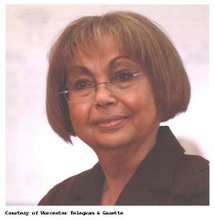In two previous notes I have welcomed the education reforms contemplated and/or being currently instituted in Burkina Faso and Ghana. I have argued there and I shall argue here that Africa’s development should not focus solely on improving the “material basket” of goods for the population, but should also address the need for cultivating the most significant source of wealth – the mind. Translating into simple terms, the development of human capital. Building schools to alleviate illiteracy and/or provide vocational training although a prerequisite to a developing society, it is by no means sufficient. What is needed is to address a much more powerful resource, the human mind. Universities are the host for such a development. There is an urgent need to focus on this pillar for development. It is not enough to boost that an African country has one or two universities within its border or that there are thousands of students enrolled in these universities. Rather we should be looking at the university not only as a vehicle to generate a higher level of education, which is salutary, but also as an engine for development.
The African Universities have to serve their clients, the students, but much more importantly the community and the country. As it currently stands, the African University is over burdened by lack of infrastructure and teachers. Most significantly is the lack of the freedom and/or capacity for students and faculty to participate in the development of their community and country.
With all the difficulties associated with Africa’s development, I am encouraged by news from Africa about academia’s reach to the community. In February 2007, students from the University of Nairobi (Kenya) visited four villages in a Matayos division (a hard core poverty area) to carry out community development outreach activities. The theme was: “taking the university to the village”. The underlying philosophy I believe is to develop a model for the university to reach out to the community and to learn from the community. Education is a two ways street. The university generates knowledge, but most African universities insulate themselves from active participation in their communities and most often play no role in shaping or formulating development policies. Knowledge is a “treasured” good but it should never be locked up within the walls of the university.
The Institute for Economic Policy Studies’ African Outreach Program is committed to expand the boundaries of the University by enabling college teachers and students to break new grounds in redefining the role of the university. We believe that the university not only is a generator and store of knowledge but also an active participant in dissemination and the use of this knowledge.
The Institute for Economic Policy Studies (see its activities at http://www.iespolicy.org/) is currently in the planning stage for a Conference on the “Role of the University in the Process of Development”. More on the program will be posted later.
Subscribe to:
Post Comments (Atom)

No comments:
Post a Comment